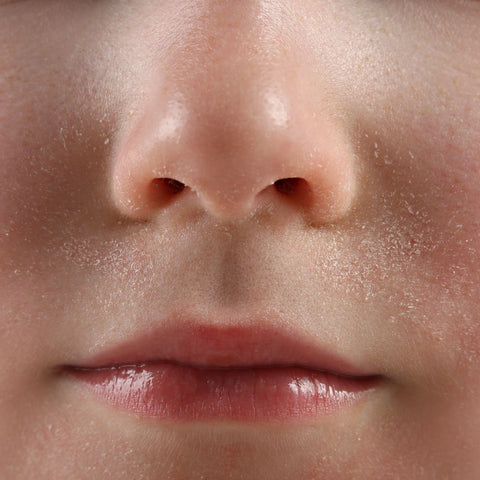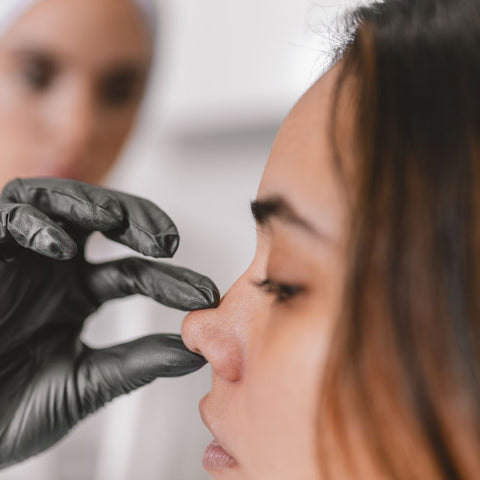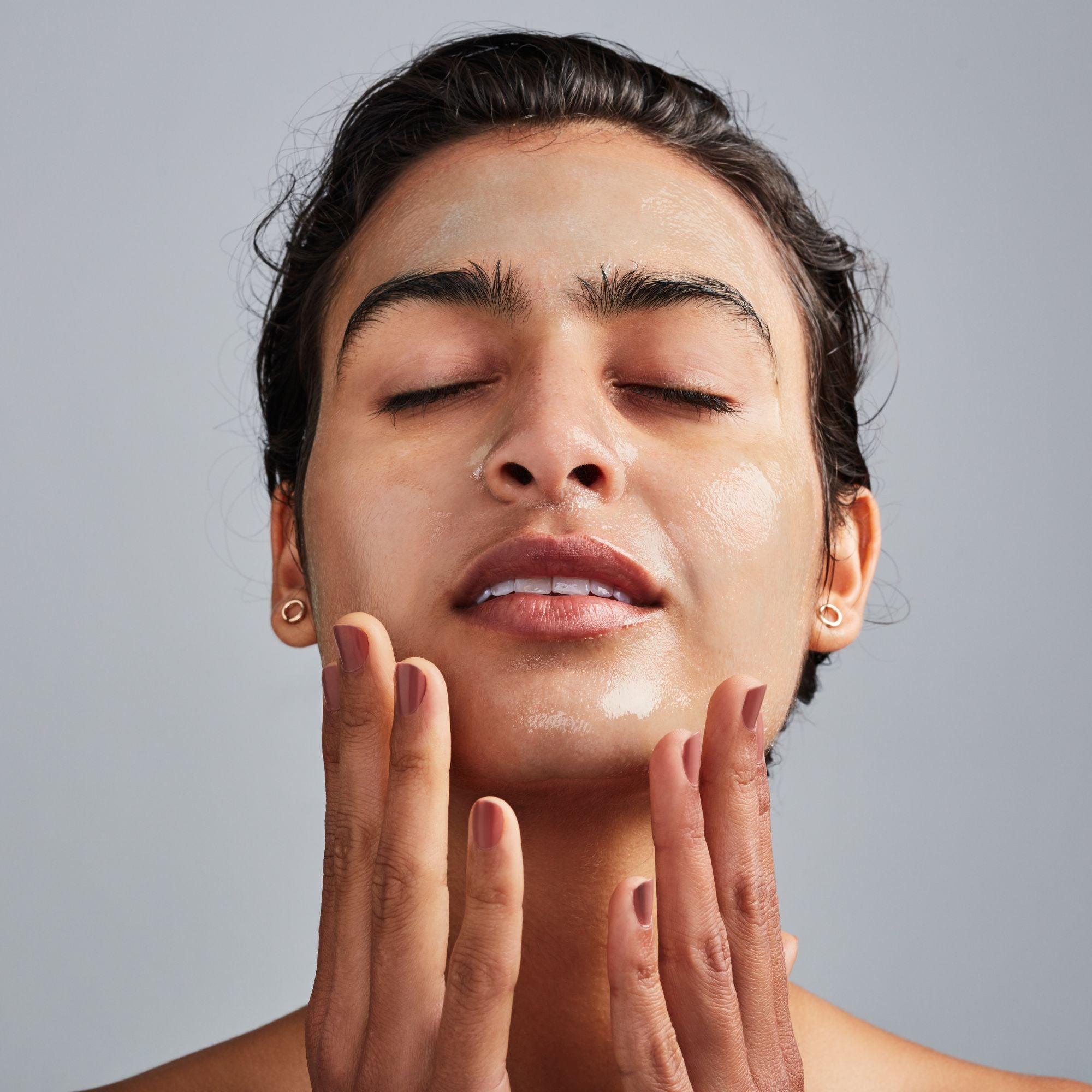Dry skin around the nose can be a bothersome condition, causing discomfort and frustration. If you're dealing with this issue, it's important to understand the underlying causes and find effective treatments to alleviate the dryness.
There are several factors that can contribute to dry skin around the nose. Environmental conditions, such as cold weather or low humidity levels, can strip the skin of its natural moisture, leading to dryness. Additionally, skin conditions like eczema or dermatitis can cause excessive dryness and flaking around the nostrils.
Your skincare routine and lifestyle habits can also play a role in the appearance of dry skin. Using harsh cleansers or over-exfoliating can strip away the skin's protective barrier, leaving it vulnerable to dryness. Similarly, smoking, excessive alcohol consumption, and a poor diet can contribute to skin dryness.
To effectively treat dry skin around the nose, it's essential to restore moisture and nourishment to the affected area. A moisturizing routine that includes gentle cleansers and hydrating products can help replenish the skin's moisture barrier. You may also consider using a humidifier to add moisture to the air and avoid harsh environmental conditions.
In severe cases or if your dry skin persists despite proper care, it's advisable to seek professional guidance. A dermatologist can evaluate your condition and recommend targeted treatments or prescription medications to alleviate your symptoms.
By understanding the causes and adopting an appropriate skincare routine, you can effectively treat dry skin around the nose and achieve a healthier, more moisturized complexion.
Key Takeaways:
- Dry skin around the nose can result from various factors, including environmental conditions, skin conditions, improper skincare routines, and lifestyle habits.
- Gentle cleansers, moisturizers, and protective measures can help restore moisture to the skin and alleviate dryness around the nose.
- In severe cases, seeking professional guidance from a dermatologist is recommended.
- Avoid harsh environmental conditions and consider using a humidifier to add moisture to the air.
- Take care of your overall health by avoiding smoking, excessive alcohol consumption, and maintaining a balanced diet to promote healthier skin.
Common Causes of Dry Skin Around Nose
In this section, we will delve into the common causes of dry skin around the nose. Factors such as environmental conditions, skin conditions, improper skincare routine, and lifestyle habits can contribute to dryness and peeling of the skin on the nose.
Environmental conditions play a significant role in the health of your skin. Cold weather, low humidity levels, and exposure to harsh winds can strip away the skin's natural moisture, leading to dryness around the nostrils.
Additionally, certain skin conditions like eczema, psoriasis, or dermatitis can cause dry skin around the nose. These conditions disrupt the skin's barrier function, making it more prone to dryness and flaking.
Improper skincare routine can also exacerbate dryness. Using harsh soaps or cleansers that strip away the skin's natural oils, over-exfoliating, or not moisturizing enough can disrupt the skin's moisture balance, resulting in dry skin around the nose.
Lastly, our lifestyle habits can contribute to dryness. Smoking, excessive alcohol consumption, and poor nutrition can impact skin health and moisture levels.

By identifying these causes, you can take appropriate steps to prevent further dryness and restore moisture to the affected area. In the next section, we will explore effective treatments for addressing dry skin around the nose.
Effective Treatments for Dry Skin Around Nose
If you are experiencing dry skin around your nose, there are several effective treatments that can help restore moisture and alleviate discomfort. Incorporating these skincare tips into your routine can promote healthier and more hydrated skin in this delicate area.
First and foremost, establishing a moisturizing routine is essential. Use a gentle, fragrance-free moisturizer specifically designed for dry skin. Apply it to your nose area every morning and evening to keep the skin hydrated throughout the day. Additionally, consider using a moisturizing cream with ingredients like hyaluronic acid or ceramides, which can help retain moisture.
Protecting the skin around your nose is equally important. Shielding it from harsh weather conditions, such as cold winds or strong sun exposure, can prevent further dryness. Use a scarf or face mask during winter months and apply sunscreen with at least SPF 30 whenever you go outside to protect your skin from harmful UV rays.
Furthermore, you can try home remedies to soothe and nourish dry skin. A natural remedy is to apply a thin layer of honey on the affected area and leave it on for 15 minutes before rinsing it off. Honey has moisturizing and antibacterial properties that can help restore moisture and reduce inflammation. Another option is to gently exfoliate the skin around your nose with a homemade sugar scrub. Mix equal parts of sugar and coconut oil to create a gentle scrub, then massage it into the skin using circular motions. Rinse off with warm water and pat dry.

It is important to note that if your dry skin around the nose persists or worsens despite these treatments, it is advisable to seek professional guidance. A dermatologist can assess your condition and provide you with tailored skincare advice or prescribe medicated creams or ointments to address severe cases of dryness. Remember, taking care of your skin health is essential for maintaining a comfortable and well-hydrated complexion.
FAQ
What are the common causes of dry skin around the nose?
The common causes of dry skin around the nose include environmental conditions, such as cold weather and low humidity, skin conditions like eczema or dermatitis, improper skincare routine, excessive washing or scrubbing, and lifestyle habits, such as smoking or excessive alcohol consumption.
How can I treat dry skin around my nose?
To treat dry skin around the nose, you can follow a few effective treatments. Firstly, ensure you have a proper skincare routine that includes gentle cleansing and moisturizing. Avoid harsh soaps or products that contain alcohol. Apply a moisturizer specifically for dry skin regularly. Protect your skin from harsh environmental conditions by covering your face with a scarf in cold weather. You can also try home remedies like applying aloe vera gel or coconut oil to moisturize the affected area. If your condition doesn't improve or worsens, it is recommended to seek medical advice from a dermatologist.
Can allergies cause dry skin around the nose?
Yes, allergies can contribute to dry skin around the nose. Allergic reactions to certain substances, such as pet dander, pollen, or certain chemicals, can cause skin irritation and dryness. If you suspect allergies to be the cause, it is important to identify the allergen and take appropriate measures to avoid it. Consult with an allergist for proper diagnosis and treatment options.
Is it normal for the skin on my nose to peel?
The peeling of skin on the nose can be a common symptom of dry skin. When your skin lacks moisture, it becomes dry and may start to peel. This can be exacerbated by factors such as excessive sun exposure, harsh facial cleansers, or underlying skin conditions. Taking steps to moisturize and protect your skin can help prevent peeling and restore its health.
Should I use any specific products for dry skin around the nose?
When dealing with dry skin around the nose, it is recommended to use products specifically formulated for dry or sensitive skin. Look for moisturizers that contain hydrating ingredients like hyaluronic acid, glycerin, or ceramides. Avoid products with harsh chemicals or fragrances that can further irritate the skin. If you are unsure about which products to use, consult with a dermatologist who can recommend suitable options based on your skin type and condition.




